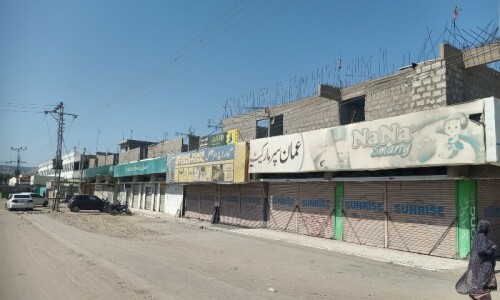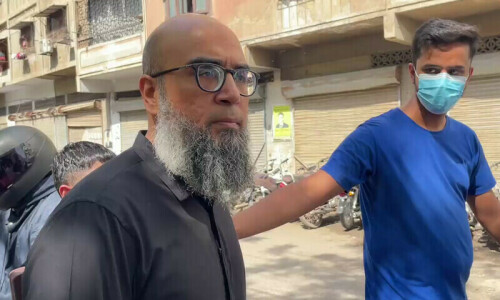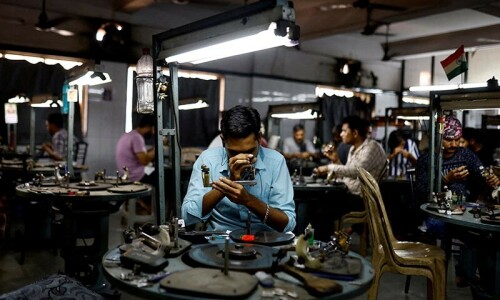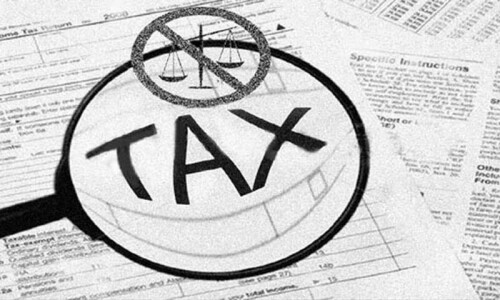BRUSHING aside criticism that it is about to commit yet another violation of the Constitution, the ECP on Thursday announced that general elections will be held “in the last week of January” — nearly three months after the constitutional deadline to hold polls expires.
After this announcement, it has become clear that President Arif Alvi’s letter, wherein he recommended to the ECP that the question of when elections ought to be held should be taken up with the superior judiciary, was consigned to the dustbin shortly after it was received.
With the Supreme Court withdrawing behind its new chief justice’s apparently strict interpretation of Article 184(3), the legal community divided, the PPP confused about what it wants, and the PTI in disarray, not much seems to be standing in the way of those who plotted this delay in the electoral exercise.
One can only hope that this ‘neutralisation’ of the Constitution — acquiesced to by most stakeholders under the ostensible patronage of the establishment — will prove temporary.
A timeline has been given, but, as the proverb goes, there’s many a slip between the cup and the lip.
Will the ECP really deliver on this occasion, considering the number of U-turns it has already taken this year? It may be recalled that the Commission had issued an election schedule for Punjab in March before withdrawing it later for flimsy reasons.
At the heart of this uncertainty is the ECP’s questionable posture that it is some kind of supra-constitutional authority which can delay elections for however long it feels necessary.
This stance has been validated so far by the state’s refusal or failure to hold the Commission to account for delaying the Punjab and KP elections. Given that the precedent is there, there seems to be no good reason to write off further delays.
The proof of the pudding is in the eating. If the ECP wishes to affirm that it is serious, it should start moving on all pending matters so that the possibility of any further delay is minimised. It has already sent a draft election code of conduct to political parties, seeking their feedback.
From what has been reported about this code, one important ‘rule’ seems missing: building on the increase in the number of registered women voters, the ECP should seek formal guarantees from political parties that they will not seek to block women from participating in the electoral process anywhere in the country and, instead, will encourage them to vote with all possible means at their disposal.
The ECP also needs to take up without delay the complaints regarding the absence of a level playing field made by two major parties. The country cannot afford another election to be tainted by accusations of pre-poll rigging.
Published in Dawn, September 22th, 2023















































